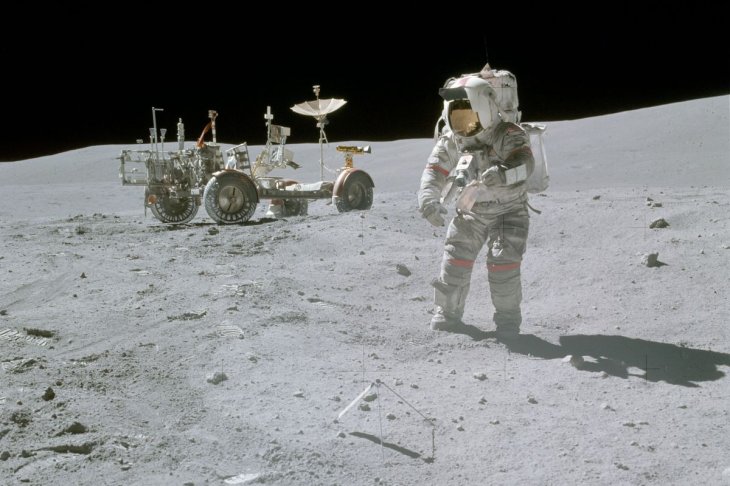NASA Will Pay You 12 Lakh To Stay In Bed And Sleep
Aadhya Khatri - Mar 31, 2019

This test is to find a way to help astronauts remain healthy in space and to develop an antigravity device
- Russia Will Build A Lunar Space Station With China Because It's Done With NASA
- NASA Reveals 20 Most Stunning Earth Images Taken From The ISS
- Indian-Origin NASA Researcher Discovers Jupiter Moon Europa Glows In The Dark
NASA has just announced one of the best deals ever, which does not require you to know rocket science. It will pay you to go to sleep for at least 2 months. This project is a joint effort of NASA and the ESA (European Space Agency) to conduct research on how people sleep in humanmade gravity.

You will be paid to sleep
Their test subjects include 12 male and 12 female with age between 24 and 55. They will have to participate for two months, and after the project is done, they will be paid around Rs 12.81 lakh.
During the time of the test, the 24 subjects are not allowed to make any physical or mental effort, and scientist will conduct studies on their balance, how strong their muscles are, and their cardiovascular function. And 12 of them will be put in a room with no gravity while the rest remain outside.
Experts think that by comparing the states of the two groups, they will able to find valuable data that can support astronauts with their missions in space.

This study could help astronauts stay healthy
Similar studies have been conducted on the ISS, but this research is still needed to answer some specific questions that have been troubling scientist.
Space is a totally different environment to Earth, so when astronauts have been in there for a long time, their muscles might swell, which requires them to work out much more than when they are on Earth. Another more severe consequence is the bones might become less dense, which can make them more vulnerable. Last but not least, the mental problems astronauts must endure by being confined in a small room with the same faces for a long time.
If the study yields good results, astronauts might have a chance to improve their health and NASA can work on some kind of an antigravity machine for the ISS or even probes on missions to Mars.
Featured Stories

Features - Jan 29, 2026
Permanently Deleting Your Instagram Account: A Complete Step-by-Step Tutorial

Features - Jul 01, 2025
What Are The Fastest Passenger Vehicles Ever Created?

Features - Jun 25, 2025
Japan Hydrogen Breakthrough: Scientists Crack the Clean Energy Code with...

ICT News - Jun 25, 2025
AI Intimidation Tactics: CEOs Turn Flawed Technology Into Employee Fear Machine

Review - Jun 25, 2025
Windows 11 Problems: Is Microsoft's "Best" OS Actually Getting Worse?

Features - Jun 22, 2025
Telegram Founder Pavel Durov Plans to Split $14 Billion Fortune Among 106 Children

ICT News - Jun 22, 2025
Neuralink Telepathy Chip Enables Quadriplegic Rob Greiner to Control Games with...

Features - Jun 21, 2025
This Over $100 Bottle Has Nothing But Fresh Air Inside

Features - Jun 18, 2025
Best Mobile VPN Apps for Gaming 2025: Complete Guide

Features - Jun 18, 2025
A Math Formula Tells Us How Long Everything Will Live
Read more

Mobile- Feb 17, 2026
Anticipating the Samsung Galaxy S26 and S26+: Key Rumors and Specs
The Samsung Galaxy S26 series is on the horizon, sparking excitement among tech enthusiasts.

ICT News- Feb 19, 2026
Escalating Costs for NVIDIA RTX 50 Series GPUs: RTX 5090 Tops $5,000, RTX 5060 Ti Closes in on RTX 5070 Pricing
As the RTX 50 series continues to push boundaries in gaming and AI, these price trends raise questions about accessibility for average gamers.

ICT News- Feb 18, 2026
Google's Project Toscana: Elevating Pixel Face Unlock to Rival Apple's Face ID
As the smartphone landscape evolves, Google's push toward superior face unlock technology underscores its ambition to close the gap with Apple in user security and convenience.
Comments
Sort by Newest | Popular